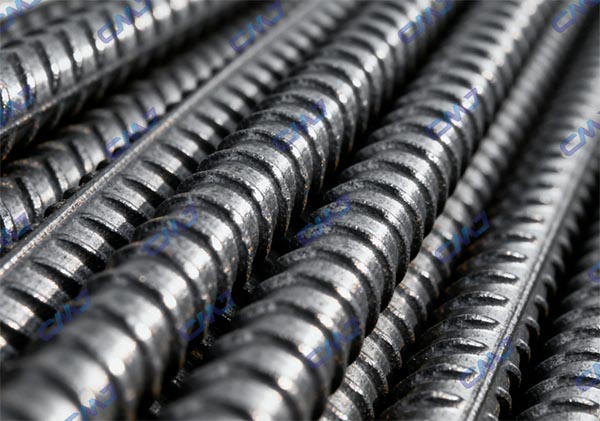Placa de Acero Esmaltado (Enamel Steel Plate): Características, Usos y Cómo Elegir el Material Adecuado
1134Guía completa sobre la placa de acero esmaltado: características, usos industriales y diferencias frente a otros materiales.
View detailsSearch the whole station
In reinforced concrete construction, ASTM A615 rebar is one of the most widely used standards for reinforcing steel bars. Published by ASTM International, the ASTM A615 steel specification defines the requirements for hot-rolled carbon steel bars used in concrete reinforcement. The ASTM A615 standard (norma ASTM A615) is widely referenced in global construction markets, including North America, Latin America, and Asia.
This article provides a detailed overview of ASTM A615 reinforcing bar, covering chemical composition and mechanical properties tables, plus comparison with ASTM A706 and common engineering applications.

ASTM A615 reinforcing bar specifies hot-rolled carbon steel rebars commonly used in bridges, buildings, foundations, and tunnels.
ASTM A615 defines rebar grades based on minimum yield strength. The most widely used grades are Grade 40, Grade 60, and Grade 75.
| Grade | Minimum Yield Strength (MPa) | Purchasing Suggestion |
| ASTM A615 Grade 40 | 280 | Suitable for residential and light construction, where cost efficiency matters most. |
| ASTM A615 Grade 60 | 420 | Most commonly used grade worldwide — ideal balance between strength, availability, and price. |
| ASTM A615 Grade 75 | 520 | Recommended for large-scale infrastructure such as bridge piers, tunnels, and heavy foundations. |
The ASTM A615 chemical composition requirements for Grades 40, 60, and 75 are generally the same under ASTM A615. Differences between grades are mainly reflected in mechanical properties rather than chemical limits.
| Element | Maximum Content (%) |
| Carbon (C) | 0.30–0.50 (varies slightly with bar size) |
| Manganese (Mn) | 0.60–1.50 |
| Phosphorus (P) | ≤ 0.050 |
| Sulfur (S) | ≤ 0.060 |
Influence of elements on ASTM A615 steel properties:
*The ASTM A615 Grade 60 chemical composition follows this standard range, ensuring consistent tensile strength and reliable performance across construction applications.
Mechanical performance is critical for safe structural design.
| Grade | Yield Strength (MPa) | Tensile Strength (MPa) | Elongation (%) |
| ASTM A615 Grade 40 | ≥ 280 | ≥ 420 | ≥ 12 |
| ASTM A615 Grade 60 | ≥ 420 | ≥ 620 | ≥ 9 |
| ASTM A615 Grade 75 | ≥ 520 | ≥ 690 | ≥ 7 |

Different grades of ASTM A615 rebar are used in different structural environments:
For a breakdown of how rebar is placed in columns, beams, walls, patios, and more, see Rebar Applications in Concrete Construction.
Engineers often compare ASTM A615 vs ASTM A706:
| Feature | ASTM A615 | ASTM A706 |
| Type | Carbon steel | Low-alloy steel |
| Weldability | Limited | Excellent |
| Ductility | Standard | Higher |
| Cost | Lower | Higher |
| Best Use | General reinforcement | Seismic or welded structures |
*ASTM A615 reinforcing bar is not intended for welding; attempting to weld A615 may compromise structural integrity. For applications requiring welding, ASTM A706 rebar is recommended.
ASTM A615 rebar (latest version) remains one of the most important reinforcing steel standards in global construction. With its clear grade classification, reliable chemical composition, and mechanical performance, it offers a versatile and cost-effective solution for concrete reinforcement.
For more steel rebar grades, check our rebar collection page or contact our team for product catalogue.
CJM regularly supply ASTM A615 Grade 60 (commonly used for bridges and floor structures), Grade 40 (for lighter structural applications), and Grade 75 (for heavy-load foundations). If you require Mill Test Certificates (MTC) or welding/processing recommendations, please provide the project application or construction requirements so we can offer accurate guidance and pricing.
Guía completa sobre la placa de acero esmaltado: características, usos industriales y diferencias frente a otros materiales.
View detailsDiscover our ultra-compact 304 stainless steel U-channel, measuring just 24mm × 18mm × 3mm with a 240mm length. Ideal for tight-space applications, this mini channel offers excellent corrosion resistance, precise shape, and versatility for industr...
View detailsUnderstand the technical and regulatory differences between structural and pressure vessel steel plates. Compare grades, properties, and applications in one guide.
View detailsDiscover the best NM400, NM450, and NM500 wear-resistant steel plates for mining and quarry equipment. Improve durability and reduce downtime with CJM Steel.
View details
HelloPlease log in